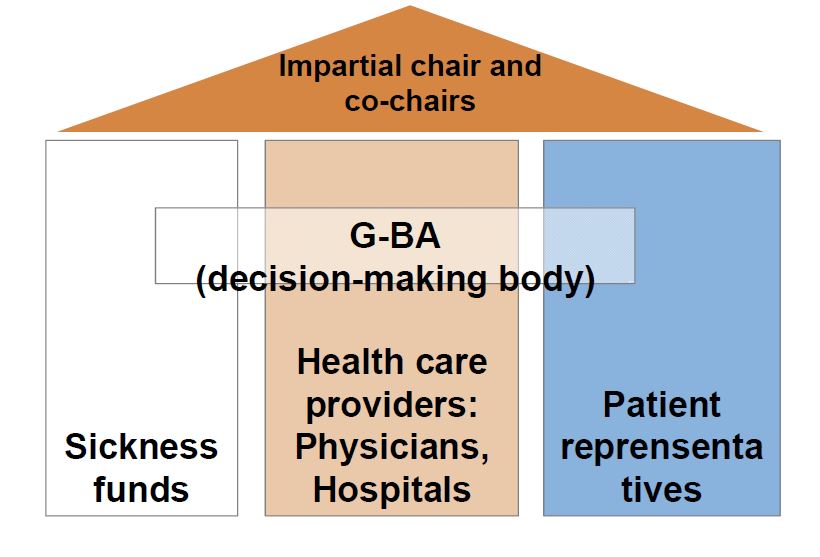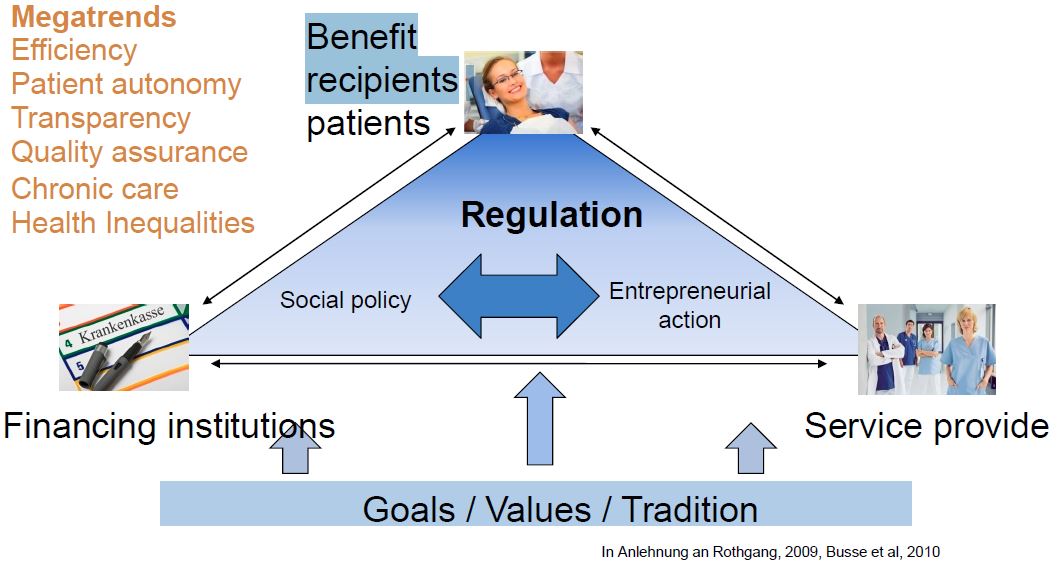This explication of the German health care system is derived from presentations by Prof. Karl Lauterbach, Member of the Bundestag and Director of the Institute of Health Economics and Clinical Epidemiology University Hospital, Cologne.
German Health Care System – Basic Data
Germany has about 82 million inhabitants, of these
- 72 million (50 million members) are covered by Statutory Health Insurance
- 89% are covered by the Statutory Health Insurance and – 11% covered by private insurance
Statutory Health Insurance dates back to 1883 (Bismarck)
- originally only blue-collar workers
- definition of minimum benefit catalogue
- different types of sickness funds according to social/professional groups
Today´s characteristics
working solidarity principle, i.e.
- no surcharge for age or risk
- low salary = low payment
- dependants of members (which pay contributions rates) eligible for the same benefits
- contributions for unemployed & welfare recipients paid by public funds
highly developed infrastructure, no waiting lists
problems: aging society, innovations, costs
Total providers: 325,945 physicians, 67,157 dentists, 58,932 pharmacists
Health Care Expenditure 278.3 Billion Euro by selected financing agents – in percent – 2009
The Federal Joint Committee is
– the main decision-making body in German health care
– authorized by law to issue legally binding directives
– established in 2004, but predecessor committees dating back to the 1920s,
– represents physicians, hospitals, sickness funds and patients
Structure of the G-BA

How the G-BA works
The Institute for Quality and Efficiency in Healthcare
Institut für Qualität und Wirtschaftlichkeit im Gesundheitswesenis IQWiG
Duties and Functions
Evidence-based and independent reports on…
- Cost-effectiveness of pharmaceuticals
- Assessment of non-pharmaceutical technologies
- Screening and prevention
- Disease Management Programs
- Health Care Information for Patients
Health Care Relations in Germany
Health Inequalities: Health status and behaviour
the relation between health and social status is well documented in the literature. Germany is no exception
- Individuals with higher incomes have lower risk of
• obesity
• cardiovascular disease
• diabetes
• smoking - Income, education and retirement status are important factors that cause health inequality in Germany
Health policies in Germany include a compulsory health insurance system. Individuals must have public or private insurance
Aim: equal and equitable access to curative and preventive health care



